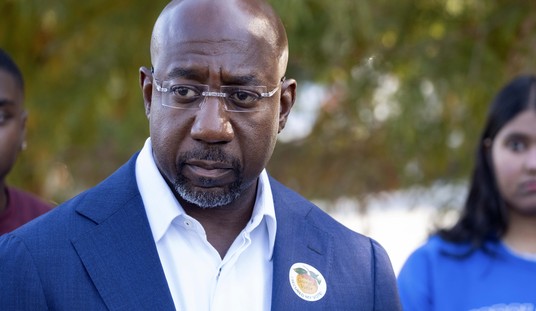Across the internet and social media I’m reading a variety of stories about how the Justice Department and the Courts are managing the process of arresting dozens — maybe a hundred or more — persons being charged in connection with protesters storming the Capitol on January 6. Let me clear up some confusion on the process and how things are playing out in the initial proceedings which are happening in courts all across the country — and that is the first issue everyone needs to understand about what is taking place.
The US Attorney’s Office in the District of Columbia has jurisdictional responsibility for prosecution of the criminal acts that took place in the Capitol. Special Agents from the FBI, Department of Homeland Security, and other federal agencies with authority to investigate these types of crimes have been conducting hundreds — maybe thousands — of interviews, and reviewing videotape from thousands of security cameras in the Capitol and around DC, as well as any citizen-captured video that has been posted online.
All of that evidence is being processed and reviewed in a manner coordinated by Assistant US Attorneys in the District of Columbia US Attorney’s Office. Where supported by the evidence, agents are drafting affidavits and prosecutors are filing criminal complaints to obtain arrest warrants for individuals connected to their actions. Given the sheer numbers involved, I would guess that a dozen or more prosecutors are working on cases connected to the January 6 protests and nothing else.
But, as Michael Sherwin, Acting US Attorney for the District of Columbia, noted in a public statement earlier in the week, this process is made quite difficult by the fact that most of the persons being charged were able to return to their homes in other states prior to them being identified and the charges being filed. Those individuals are now being arrested in their home states — not in DC. That fact creates some procedural issues that DOJ must work through before the cases can proceed.
The first thing to know is that the paperwork underlying the charges is all processed in the District of Columbia. The agents gathering the evidence and the prosecutors drafting the charging documents — the government officials who know the facts — are all in DC.
But the agents making the arrests and the prosecutors appearing in Court when the defendant is brought before the judge all work in the location where the defendant is arrested. They know little about the evidence against a particular defendant beyond that which is set forth in the paperwork that has been sent to them by the prosecutors and agents in DC handling the cases. Such “out of districts” arrests generally fall to the prosecutor who is “on duty” for the day or the week, and there really isn’t time to make any meaningful effort to learn more about the case prior to the defendant’s “initial appearance” in court. Oftentimes the “duty” AUSA gets the paperwork less than an hour before the appearance is set to take place.
That can lead to situations like the one which played out earlier this week in Arizona where local prosecutors there made statements in court in characterizing the events of January 6 that went farther than the prosecutors in DC thought the evidence would support, forcing the DC US Attorney to “walk back” some of what had been said in Arizona.
At that “initial appearance” handled by the local prosecutors where the defendant is arrested, there are only two issues addressed by the Court on an “out of district” warrant arrest.
First, is the person who has been arrested the same person who is actually “wanted” by the Court in another federal district. That’s called an “Identity Determination”, and a defendant has the right by statute to have a hearing on that question. At such a hearing the government would have to submit evidence to the Court that the “John Smith” under arrest is the same “John Smith” charged with a crime in the other district. In the vast majority of cases, defendants waive their right to an ID hearing and admit that they are the person wanted in the other district. Nothing good comes from wasting the Court’s time by demanding an identity hearing when you know you are the person who has been charged with a crime in another district.
Second, the Court must decide how it will be that the defendant will get from the district of he is arrested to the district where he is charged with a crime — will it be in the custody of the US Marshals who will transport him, or will he be allowed to travel to the other court to make an appearance at his own expense.
But when someone is arrested in one district — where they live for example — for a crime alleged to have been committed in another district, the Court where he was arrested cannot ORDER him to appear in the other Court where he is charged unless one of the three events happens.
First, the defendant simply agrees to travel to that other Court at his own expense and present himself for arraignment by a judge there on a date and time specified by that other Court. This is a voluntary decision by the defendant to cooperate in that fashion. A defendant cannot be ordered to do so.
Second, a grand jury in that other Court has returned an indictment in which the defendant is named. The indictment constitutes “probable cause” that the defendant has committed a crime, and is a sufficient basis for one Court to order the defendant to travel and appear in the Court where the defendant is charged. Failure to do so would constitute a new crime.
Third, when no indictment from that other Court has yet been returned, the government has 10 court days to either obtain such an indictment or conduct a preliminary hearing in the Court in the district where the defendant was arrested. In that preliminary hearing the government must put on witness testimony before a judge that establishes probable cause to conclude the defendant may have committed a crime in that other district. Upon making such a determination, the judge can then order the defendant to appear in that other district to be arraigned on the charges.
What has been happening this week is that people are being arrested in their home districts under circumstances that fit my third category. Grand juries have not yet begun to return indictments against the people who hare being arrested. That process will likely get underway next week with cases being presented to grand juries in Washington DC, and indictments being returned. That will give the Courts in the locations where defendants have been arrested the legal authority to order the defendants to travel back to Washington DC to appear and enter their pleas. Until that happens, the defendants are allowed to sit home and wait for the government to act.
But this then raises the second issue with regard to detention. While a defendant — not yet indicted and not having had a probable cause determination made by a judge — waits for the government to act, is that defendant to be held in custody or allowed to await the government’s action at home under a variety of conditions that can be imposed by the judge during that interim period?
In those circumstances — even before COVID — the federal magistrates who make these decisions tend to err on the side of release, usually with a host of conditions. For example, as was reported by my colleague Nick Arama here at RedState earlier today, a judge in Utah released noted Antifa agitator John Sullivan while he waits on being charged by a grand jury in DC. But in doing so, the judge issued a series of conditions on his release.
First, his release is subject to “home detention” and electronic monitoring — which he must pay for. That means he’ll wear an ankle bracelet that will notify the Court if he leaves his home.
She also ordered that he obtain full-time employment, and at the same time prohibited him from working for “Insurgence USA” which is the Antifa organization he founded, and which sells merchandise online to fund his travels.
She banned him from using social media, and any other online activity by him is subject to monitoring by PreTrial Services which supervises for the Court persons who have been released with charges pending.
She also ordered that he undergo a psychiatric evaluation, and comply with any treatment recommendations made in connection with that evaluation. There seem to be some concerns expressed by his family that Sullivan is experiencing mental health problems. Up until two years ago, Sullivan was a near-Olympic level speedskater, having attempted (and failed) to qualify for the 2018 US Olympic team. His father is a retired Lt. Colonel in the US Air Force, and Sullivan has been estranged from his family since he took up left-wing protest activities in the summer of 2020 — abandoning a sales job where he reportedly made more than $200,000 a year.
This same situation applies to everyone else who has been arrested in places around the country other than DC. Unless they volunteer to return to DC on their own, they are all simply waiting for the DC Grand Juries to start meeting to consider cases this coming week. it is not surprising that most — nearly all — are being released from custody while that process takes place.
In the federal system, none of them have actually been charged with a crime yet, because such charges must come from a grand jury under the Fifth Amendment. Federal judges are VERY reluctant to hold people in custody — for maybe as long as 10 days — without an indictment being returned. Issues involving the risk of increased COVID transmission among the population of those in custody have made it more likely that individuals in this situation are going to not be held in custody prior to a grand jury indictment being returned.
Some of the confusion and disorder will begin to sort itself out this week. But I expect hundreds of more arrests will be made in the weeks ahead as the investigators and prosecutors continue to go through the evidence of that happened on Jan. 6.














Join the conversation as a VIP Member